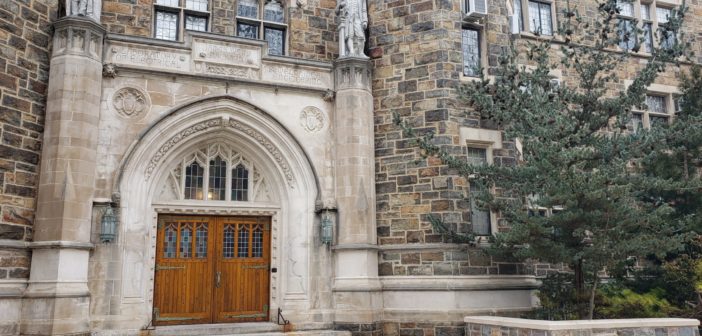Lehigh marked the beginning of its fourth week of remote learning — and for many hands-on science and engineering labs, this transition has forced professors to quickly adapt. In some cases, professors have completely generated new labs to stay on track.
For a variety of lab courses, professors and students are usually able to take advantage of licensed software and other helpful resources offered in Lehigh’s classrooms. However, with the shift to remote instruction, these applications are sometimes either too difficult or impossible to operate from personal laptops and other home computers.
Anne Meltzer, a professor of earth and environmental sciences, said she modified her approach to teaching lab courses, while recognizing that students have varying levels of access to technology.
Overseeing EES 022: Exploring Earth, Meltzer said she had to figure out how to cover the same material in different ways and design completely new activities in order to cover all content.
“We make sure the labs themselves are completely self-contained by developing specific instructions and guidelines, so the students can carry out the activities,” Meltzer said.
Throughout this transition, many science and engineering lab professors, like Meltzer, have turned to video content services such as Panopto or Zoom in order to continue following their syllabi while simultaneously staying connected to students.
Meltzer said she has become more flexible regarding due dates. With labs now being due at the end of the week, Meltzer and her TAs are checking in with all their students to see how they’re doing. TAs are accessible to students over Zoom if needed for help.
“If someone’s not able to turn in assignments, we’re definitely checking up with people to make sure they’re OK health-wise, technology-wise, or just overall stress-wise,” Meltzer said. “We do this to make sure that students are getting the support they need to complete their work.”
The experience of online labs has differed across various disciplines.
Rebecca Hong, ‘20, who is taking CHE 203: Chemical Engineering Laboratory II, said she has access to data needed for her laboratory experiments, but said she feels that the class is missing the specific learning style of a lab.
“We have the data, but we’re missing the hands-on intuition you get from doing the actual experiment,” Hong said.
Aidan Moretz, ‘21, is currently taking three different lab courses: Electrical Laboratory (ECE 162), Manufacturing (ME 240), which includes a large weekly laboratory component, and Mechanical Engineering Laboratory II (ME 121).
While one of Moretz’s labs has come almost to a complete stop due to newfound complications, he said ME 121 has remained the most true to its form.
Through pre-recorded videos uploaded onto CourseSite, Moretz said he is still able to watch ME 121 labs being performed. In this way, he is able to see the appartati being used and has access to the necessary values needed in order to complete his work.
“It’s obviously not ideal, since we don’t get to struggle in the lab ourselves and figure out how to read the instrumentation, but for a 100 percent lab course, it’s definitely one of the better solutions I’ve seen,” Moretz said.
Besides altering the structure of these lab courses, Meltzer said professors have been thinking of how best they can convey the concepts and achieve their desired learning outcomes, without the hands-on aspect that characterizes most labs.
“There are advantages to face-to-face instruction — you can really see when a student is understanding what they’re supposed to be learning… And when they’re not, you can help provide that guidance,” Meltzer said. “It’s pretty hard to do that online, but we do the best we can during these unusual times.”






Comment policy
Comments posted to The Brown and White website are reviewed by a moderator before being approved. Incendiary speech or harassing language, including comments targeted at individuals, may be deemed unacceptable and not published. Spam and other soliciting will also be declined.
The Brown and White also reserves the right to not publish entirely anonymous comments.